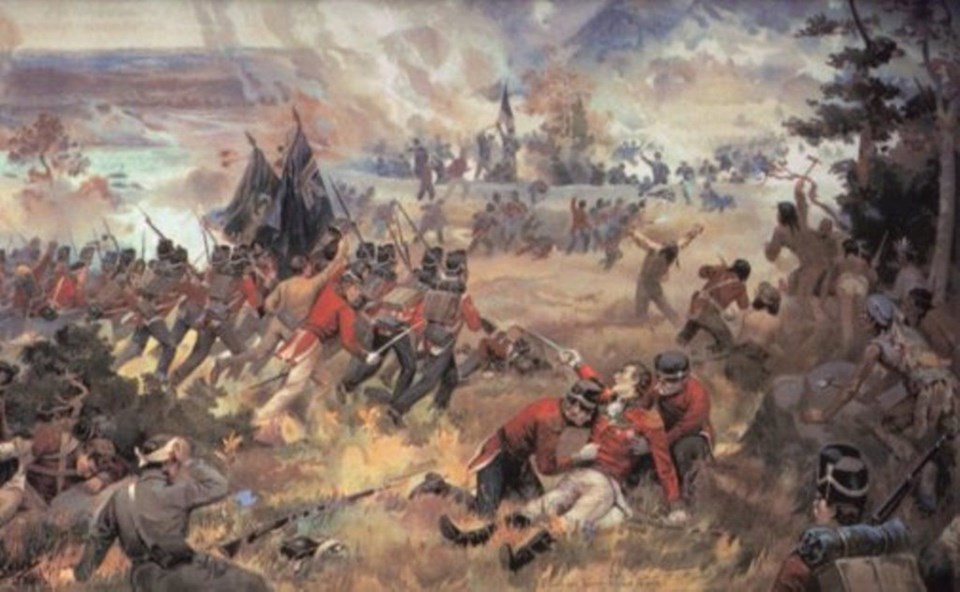Nestled within St. James United Church Cemetery, Stroud, is the headstone of Barnet Vanderburgh, War of 1812 veteran, businessman, farmer and — in his youth — occasional troublemaker.
Barnet Vanderburgh, also known as Barnabas, was born in December 1786 at Poughkeepsie, N.Y., to parents Peter H. Vanderburgh and Neeltje (Nelly) Dutcher. The Vanderburghs had remained loyal to the Crown during the American Revolution and found themselves increasingly unwelcome in the newly independent United States. They joined the tide of United Empire Loyalists who fled America and resettled in British North America (Canada) in the late 18th century.
The Vanderburgh family settled just north of York (now Toronto). Perhaps the experience of being a refugee from his birth country caused rage to simmer within Barnet. Or maybe he was just born angry. Whatever the explanation, he demonstrated a hair-trigger temper that caused him trouble with the law on several occasions. In October 1810, for example, he beat a man named Martin Holter and was found guilty of assault. He was lucky to be fined one shilling and put on probation for a year.
The following year, on July 18, 1811, Barnet married Hannah Soules, the daughter of fellow United Empire Loyalist Daniel Soules. Despite the assault conviction, Barnet would have been considered a suitable husband; he was a lieutenant in the 1st Regiment of York Militia (his father-in-law was a private under his command) and owned several plots of land he put under the plow.
When the War of 1812 broke out, Barnet was eager to serve against the nation that had treated him and his family so cruelly. He fought at the Battle of Queenston Heights when American forces invaded on Oct. 13, 1812. He was said to have been one of the soldiers who carried the mortally wounded Maj.-Gen. Isaac Brock from the battlefield.
Barnet was in action again the next spring, when an American force captured York. He was taken prisoner by the Americans but was released when the invaded army re-embarked upon their ships on May 8.
After the War of 1812 ended, Barnet returned to civilian life. But neither military discipline nor becoming a husband seemed to have tamed his rage. In October 1814, he beat Stephen Underhill rather severely. He was once again charged with assault, but this time the judge wasn’t nearly as lenient. Found guilty, Barnet was fined 20 pounds.
Barnet ran a tavern on Yonge Street in Richmond Hill for almost two decades. It was a popular stopping place for wagons and coaches travelling along this busy thoroughfare. Then, in 1832, he sold the business and joined his in-laws in Innisfil. Barnet and Hannah settled on 100 acres on the south half of Lot 16, Concession 11, what is now the northeast corner of Yonge Street and Lockhart Road.
Barnet was a hard-working and successful farmer. Middle age also seemed to temper the rage of his youth as he had no further problems with the law. Quite the opposite, he was considered a pillar of the community.
Barnet died June 17, 1863.



